TravelingForMiles.com may receive commission from card issuers. Some or all of the card offers that appear on TravelingForMiles.com are from advertisers and may impact how and where card products appear on the site. TravelingForMiles.com does not include all card companies or all available card offers.
Some links to products and travel providers on this website will earn Traveling For Miles a commission that helps contribute to the running of the site. Traveling For Miles has partnered with CardRatings for our coverage of credit card products. Traveling For Miles and CardRatings may receive a commission from card issuers. Opinions, reviews, analyses & recommendations are the author’s alone and have not been reviewed, endorsed, or approved by any of these entities. For more details please see the disclosures found at the bottom of every page.
Earlier this month, we were told that the United States would reopen its borders to fully vaccinated travelers from regions, countries, and states from where travel has been banned since the early months of the pandemic. Unsurprisingly, this news was greeted with a great deal of jubilation in various corners of the world but until now, we’ve had no firm idea what the opening would look like, what the specific requirements for travel would be and what exemptions would be permitted. Now we know.
At the time that the United States government announced that it would reopen the country to vaccinated travelers, it wasn’t in a position to provide us with much more than an outline of what the reopening would look like.
We were told that foreign nationals traveling to the United States would need to demonstrate proof of full vaccination against COVID-19. We were told that this requirement would come into effect from 8 November 2021. We were told that some of the new requirements would affect US citizens. And we were told to head over to the CDC website to see what the US government defines as “fully vaccinated” and what vaccines the US government recognizes.
Apart from that, we were told that the main guidance documents for the new travel policy hadn’t been drawn up but that full details would be available “well in advance of 8 November”.
Well, we’re now less than two weeks away from the date that the US is opening up to travelers originating in the Schengen Area, the UK, Ireland, and a number of other countries and the President has finally signed a proclamation which sets out the new vaccine requirements for foreign travelers as well as lifting the bans that have been in place.
What the proclamation says
“I have determined that it is in the interests of the United States to move away from the country-by-country restrictions previously applied during the COVID-19 pandemic and to adopt an air travel policy that relies primarily on vaccination to advance the safe resumption of international air travel to the United States. This proclamation governs the entry into the United States of noncitizen nonimmigrants — that is, noncitizens who are visiting the United States or otherwise being admitted temporarily — traveling to the United States by air.”
From 8 November 2021, the United States has suspended the entry of unvaccinated noncitizen nonimmigrants (except in limited circumstances) and will permit the entry of fully vaccinated noncitizen nonimmigrants from countries from which travel has been banned since March 2020.
There’s a long list of vaccination exemptions that you can find for yourself in the proclamation, but the key exceptions to the vaccination requirement include:
- Any noncitizen for whom, given their age, requiring vaccination would be inappropriate, as determined by the Director of the CDC, taking into account global vaccine availability for individuals in that age group;
- Any noncitizen for whom accepted COVID-19 vaccination is medically contraindicated, as determined by the Director of the CDC;
- Any noncitizen who is a citizen of a foreign country where the availability of COVID-19 vaccination is limited, as identified pursuant to section 4(a)(v) of this proclamation, and who seeks to enter the United States pursuant to a nonimmigrant visa, except for a B-1 or B-2 visa;
- Any noncitizen who is a member of the United States Armed Forces or who is a spouse or child of a member of the United States Armed Forces;
For families, the most important thing to come out of the proclamation and the new rules that it set down is that children under the age of 18 can enter the United States providing they test negative for COVID-19 within the 3 days leading up to their flight.
The United States has said that its rules governing entry into the country will recognize all vaccines approved by the World Health Organization which include the following:
- Janssen (Johnson & Johnson)
- Moderna
- Oxford/AstraZeneca
- Pfizer/BioNTech
- Sinopharm
- Sinovac
A key vaccine that is not on this list is the Russian Sputnik vaccine which means that the majority of Russian nationals will not be eligible to enter the United States from 8 November 2021 until further notice.
The requirements to enter the United States (foreign nationals)
- All adult passengers must be fully vaccinated (as defined by the US CDC) unless they fall into a specific exemption category as set out by the proclamation.
- Children under the age of 18 do not have to be fully vaccinated to travel
- All passengers must provide evidence of a negative COVID-19 test taken no more than three days before travel
- All air passengers to the United States will be required to provide basic contact information to airlines before boarding flights to the United States*
*This information goes beyond the information normally requested and will be used for contact-tracing purposes.
The requirements to enter the United States (U.S. citizens and legal permanent residents)
- U.S. citizens and legal permanent residents do not need to be fully vaccinated to enter the United States.
- Fully vaccinated U.S. citizens and legal permanent residents must provide evidence of a negative COVID-19 test taken no more than three days before travel.
- U.S. citizens and legal permanent residents who are not fully vaccinated must provide evidence of a negative COVID-19 test taken no more than three days before travel.
- The rules now say that all air passengers to the United States will be required to provide basic contact information to airlines before boarding flights to the United States so presumably, this applies to US citizens and legal residents too but no further information has been given.
Note: There are reports suggesting that unvaccinated US citizens and legal residents will also have to take a further COVID test upon entry to the United States but I have not been able to find any official details if this is actually the case or that that explains how this will work.
Will PCR tests be needed?
Up until now, travelers who have been allowed to enter the United States have been allowed to do so as long as they can provide evidence of a negative COVID-19 test taken no more than 3 days before they fly and Antigen tests have been accepted as a valid form of testing.
In the past few weeks, there have been rumors circulating suggesting that the United States would tighten up that testing requirement and that only PCR tests would become the only acceptable form of pre-departure test. Antigen tests offer quicker turnaround times and are cheaper than PCR tests but they are also less reliable so it wouldn’t have been surprising if the US decided to tighten up pre-departure testing requirements.
For better or for worse, the United States will not require pre-departure tests to be PCR tests.
As confirmed here:
“You must be tested with a viral test that could be either an antigen test or a nucleic acid amplification test (NAAT). Examples of available NAATs for SARS-CoV-2 include but are not restricted to reverse transcription polymerase chain reaction (RT-PCR), reverse transcription loop-mediated isothermal amplification (RT-LAMP), transcription-mediated amplification (TMA), nicking enzyme amplification reaction (NEAR), and helicase-dependent amplification (HDA). The test used must be authorized for use by the relevant national authority for the detection of SARS-CoV-2 in the country where the test is administered. A viral test conducted for U.S. Department of Defense (DOD) personnel, including DOD contractors, dependents, and other U.S. government employees, and tested by a DOD laboratory located in a foreign country also meets the requirements of the Order.”
Rapid tests are still ok:
“Rapid tests are acceptable if they are a viral test that meet the requirements under the Order.”
And you can still use self-tests (e.g. the UK’s Qured test) as long as its supervised (e.g. via a video call):
“You can use a self-test (sometimes referred to as home test) that meets the following criteria:
- The test must be a SARS-CoV-2 viral test (nucleic acid amplification test [NAAT] or antigen test) with Emergency Use Authorization (EUA) from the U.S. Food and Drug Administration (FDA).
- The testing procedure must include a telehealth service affiliated with the manufacturer of the test that provides real-time supervision remotely through an audio and video connection. Some FDA-authorized self-tests that include a telehealth service may require a prescription.
- The telehealth provider must confirm your identity, observe the sample collection and testing procedures, confirm the test result, and issue a report that meets the requirements of CDC’s Order (see “What information must be included in the test result?” below).
The rules go on to say that airlines and other aircraft operators must be able to review and confirm your identity and the test result details. You must also be able to present the documentation of test results to U.S. officials at the port of entry and local/state health departments, if requested.
As far as I can tell, nothing has changed with regards to the testing needed to enter the United States as these are the rules that I’ve been following for almost a year.
Bottom Line
President Biden has now signed the proclamation which will officially lift the ban on travel originating in the European Schengen area, the UK, Ireland, Iran, India, Brazil, South Africa, and China from 8 November 2021. The proclamation requires that with a few exceptions, all adult foreign nationals wishing to enter the United States must be fully vaccinated using a vaccine approved by the WHO but that children under the age of 18 may enter even if unvaccinated.

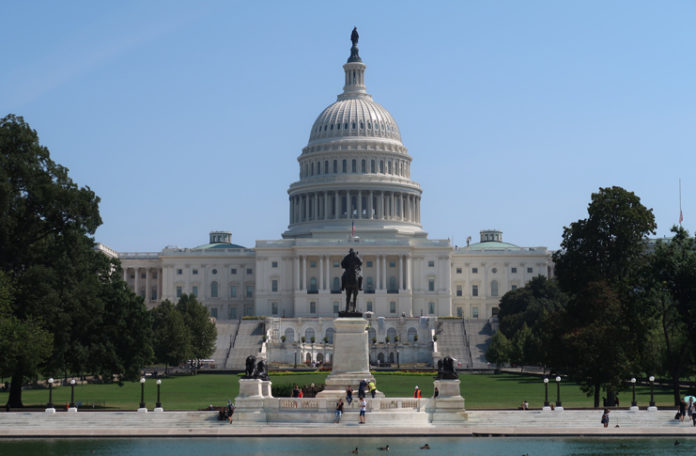
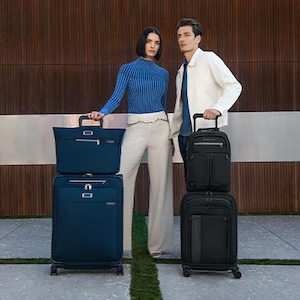
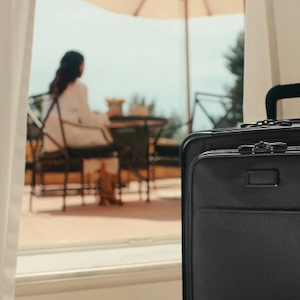
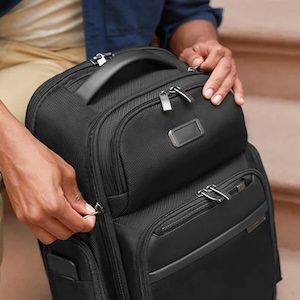
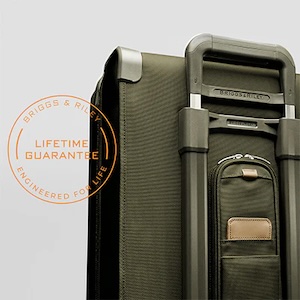






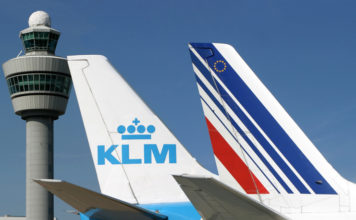
![Earn 20,000 bonus Amex points on Air France/KLM bookings [Targeted] a row of seats in a plane](https://travelingformiles.com/wp-content/uploads/2024/03/air-france-new-business-class-2-741-80x60.jpg)




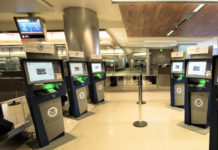

Pure garbage and very discriminatory. Might as well call the proclamation the cold war on vaccines. Many countries included Sputnik and other vaccines in their arsenals because they were the only vaccines available to them. Yet now all of these foreigners are banned from visiting the US which includes a large number of Mexicans.